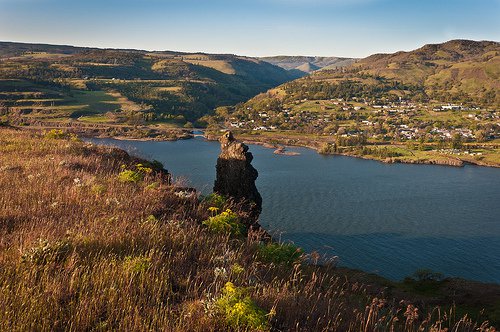Sustainability Is Success
When it comes to fish and wildlife, holding on to what we have may be the best long-term strategy
- May 29, 2013
- Carol Winkel

In an upcoming interview in the Council Quarterly, Chris Wood, who serves on the Council’s Independent Science Review Panel and the Independent Science Advisory Board, talks about some of the key findings in the science groups’ review of the Council’s 2009 Columbia River Basin Fish and Wildlife Program. The Council has begun the process to amend the program, and their report highlights the challenges ahead.
Dr. Wood, scientist emeritus with the Department of Fisheries and Oceans, Canada, is an expert in genetics and ecology of Pacific salmon and other marine fish. Here's a short excerpt.
Q: Sustainability is an overarching concern, and the threats seem to be far-reaching, even global, in nature—from climate change to the spread of non-native species. So there’s an emphasis on monitoring and evaluating these changes. Is there a tension between the M&E focus and on-the-ground actions?
Wood: I can understand decisionmakers experiencing that tension, the need to maximize investments. But we’re taking a longer view. And we’re emphasizing that success is a process, not a completed state. We can’t expect the future to be the same as today, and we need to be able to adapt. We go to some length to explain the importance of sustaining benefits rather than maximizing benefits. What do we mean by sustainability? The likelihood that a system of resource use will persist indefinitely without decline in the social benefits it delivers. So, sustainability has two aspects: The resilience to absorb disturbance without shifting to some new state; and adaptability or the capacity to cope with changes and to avoid undesirable outcomes. Knowledge from monitoring and evaluation will be critical to protecting diversity and keeping our options open.
Q: Is this a shift from wanting to control or manage nature? It sounds like a “less is more” strategy.
Wood: The command and control approach fails in the long term. It comes down to recognizing that when you try to fix things without full knowledge, you may suffer long-term effects that you hadn’t foreseen. The best course is to keep your options open, with the goal to help keep what you have, rather than trying to maximize production in the short term. We need to think longer term in order to improve outcomes down the road. Don’t engage in actions that close options, because you are likely to lose something in the longer term. There aren’t many places in the world undertaking restoration studies on this scale; as a Canadian, I’m impressed.



